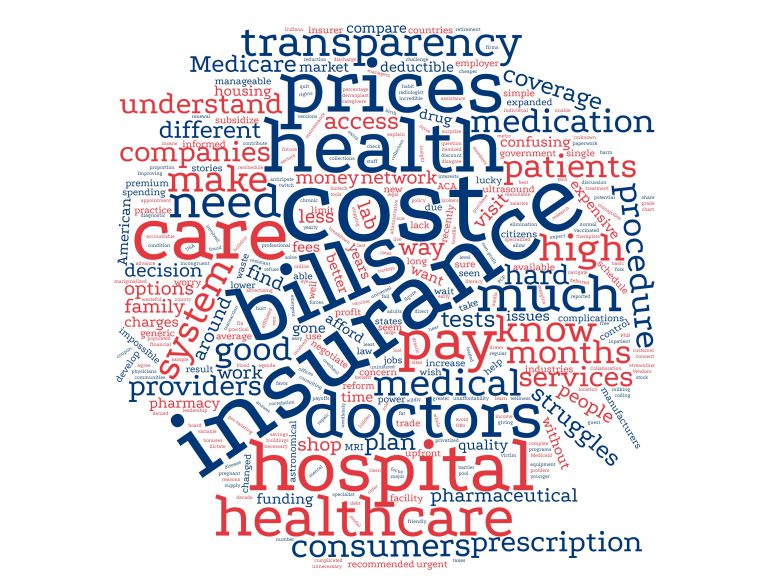We asked you, our listeners and readers, to share your concerns with healthcare costs. And the results are in.
Here are the questions we asked through the Indiana Public Broadcasting Two-Way texting group: Have you struggled with paying medical bills and understanding the high costs of healthcare? When it comes to affordability and care, what do you want us to look into?

A lot of you mentioned high, rising or unaffordable healthcare costs. You wish it was easier to shop around for medical care and compare prices.
The issue of pricing transparency is now being debated in state and federal legislatures, and on the campaign trail. You can read compelling stories about patients being surprised by five- or six-figure medical bills in the NPR/Kaiser Health News “Bill of the Month” project.
You also mentioned first-hand experiences with rising prescription drug prices — or prices that vary wildly by pharmacy or drug.
That’s a problem that will continue into 2020. Drug prices are rising again, and one research company reports that by early February, the price of 639 drugs increased by an average of 6 percent.
READ MORE: Survey: Americans Agree Health Care System Needs Fixing.
A number of you raised concerns about access to quality, affordable care in rural or minority communities. That’s a problem across the nation, due to high costs, limited availability and cultural barriers. Rural communities are being hit hard by hospital closings; University of North Carolina researchers have recorded 124 closings since 2010.

READ MORE: As 2020 Begins, Another Rural Hospital Closes
Meanwhile, a lot of you are asking systemic questions about the U.S. healthcare system: how prices are determined, how have these costs skyrocketed, how can these issues be fixed? We will use these questions to inform our reporting this election season.
Throughout the year, Side Effects will work closely with Indiana Public Broadcasting and WFYI to ask Americans about health issues. We’ll stage events, hold listening sessions and reach out via text as part of the America Amplified: Election 2020 initiative.
To join the Indiana Public Broadcasting Two-Way group, text elections to 73224. We’ll send questions each month, and use your answers to inform our reporting.
To get in touch with us directly, email health@wfyi.org
This story was produced by Side Effects Public Media, a news collaborative covering public health. It was developed in partnership with America Amplified: Election 2020, a public media initiative funded by the Corporation for Public Broadcasting. America Amplified is using community engagement to inform and strengthen local, regional and national journalism.
Follow America Amplified on Twitter at @amplified2020.
9(MDM5MjE5NTg1MDE1Mjk1MTM5NjlkMzI1ZQ000))

